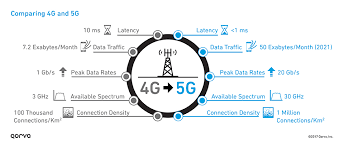The Evolution and Impact of 4G and 5G Technologies: Advantages and Disadvantages
In the rapidly evolving world of mobile communications, the advent of 4G and 5G technologies has marked a significant milestone. These technologies have not only transformed the way we communicate but also how we interact with kt lg skt 소액결제 미납 뚫는 법 the world around us. As we delve deeper into the digital age, understanding the advantages and disadvantages of 4G and 5G becomes crucial for both consumers and businesses alike.
The Pioneering Speeds of 4G Technology
4G, the fourth generation of mobile technology, set the stage for broadband mobile communications. Its introduction brought about a paradigm shift, offering users high-speed internet access, improved quality of voice and video calls, and seamless streaming experiences. The leap from its predecessor, 3G, was monumental, providing the bandwidth necessary for data-intensive applications and services.
Advantages of 4G Technology
- High-Speed Internet Access: 4G networks provide significantly faster download and upload speeds compared to 3G, enabling users to enjoy high-definition video streaming, faster web browsing, and quick file downloads.
- Improved Network Capacity and Efficiency: 4G technology uses spectrum more efficiently, allowing more users to access the network simultaneously without significant losses in speed and quality.
- Enhanced Mobile Web Experiences: The speed and reliability of 4G have revolutionized mobile web experiences, making it possible to use complex applications and services on the go, such as online gaming, live streaming, and instant video conferencing.
Disadvantages of 4G Technology
- Limited Coverage: Initially, 4G networks had limited coverage, especially in rural and remote areas, creating digital divides.
- High Infrastructure Costs: The deployment of 4G networks required significant investment in new infrastructure, which was often passed on to consumers in the form of higher service costs.
- Battery Consumption: 4G devices consume more battery due to the higher data rates and the need for devices to constantly search for signals in areas of weak coverage.
The Revolutionary Advancements of 5G Technology
Following the success of 4G, the development and deployment of 5G technology promised to usher in an era of unprecedented speed, lower latency, and greater connectivity. 5G is designed to meet the growing data and connectivity requirements of modern society, supporting a vast array of devices and services.
Advantages of 5G Technology
- Unparalleled Speeds: 5G networks offer significantly higher speeds than 4G, with potential download speeds of up to 20 Gbps, facilitating ultra-high-definition video, virtual reality applications, and more.
- Ultra-Low Latency: 5G reduces latency to as low as 1 millisecond, enhancing the performance of applications requiring real-time feedback, such as autonomous driving and telemedicine.
- Massive Connectivity: 5G can support up to a million devices per square kilometer, enabling the expansion of IoT (Internet of Things) applications, from smart homes to smart cities.
Disadvantages of 5G Technology
- Coverage Challenges: Like 4G, the rollout of 5G networks is gradual, with initial focus on urban areas, leaving rural regions behind.
- High Costs of Deployment: Establishing 5G infrastructure requires significant investment, including the installation of new antennas and the development of new technologies.
- Security and Privacy Concerns: The increased connectivity and reliance on network-based services raise concerns about data security and privacy.
Navigating the Transition from 4G to 5G
As the world transitions from 4G to 5G, it is essential to navigate the challenges and opportunities that come with these technologies. Businesses need to adapt to the capabilities of 5G, leveraging its speed and efficiency to drive innovation, while policymakers must address the digital divide by ensuring equitable access to technology.
Conclusion
The evolution from 4G to 5G technology represents a significant leap forward in mobile communications. While both technologies have their advantages and disadvantages, the overall impact on society is overwhelmingly positive, driving advancements in various sectors and improving the quality of life. As we continue to embrace these technologies, it is crucial to address the challenges they present, ensuring a balanced and inclusive digital future for all.
